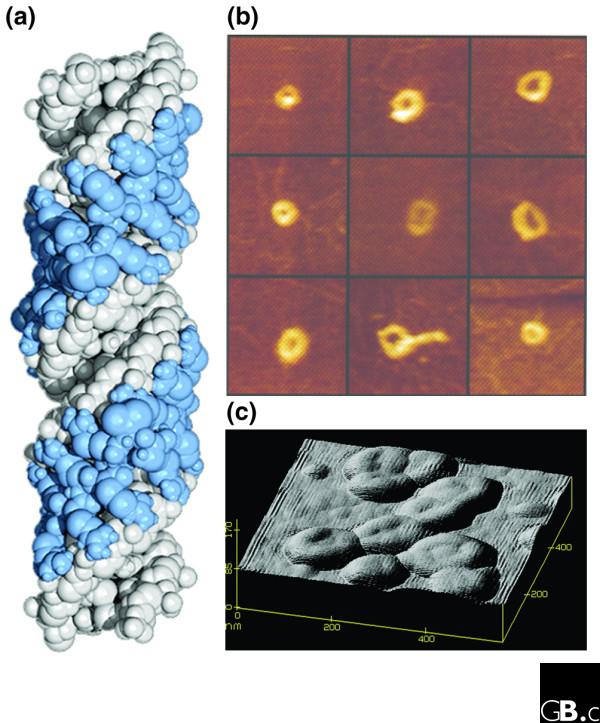Figure 2.

Protamine molecules bind in the major groove of DNA, neutralizing the phosphodiester backbone of DNA and causing the DNA molecules to coil into toroidal structures. (a) Model showing how two adjacent salmon protamine molecules (blue atoms) wrap around the DNA helix (white atoms) and bind within the major groove of DNA. (b) Scanning-probe images of toroidal DNA-protamine complexes prepared in vitro on a graphite surface by adding protamine to DNA attached loosely to the surface. The toroids formed in vitro are similar in size and shape to those isolated from human sperm chromatin (c). (c) Scanning-probe microscope images of native DNA-protamine toroids obtained from human sperm chromatin. These toroids, which comprise the basic subunit structure of protamine-bound DNA, contain approximately 50,000 bp of DNA coiled into each donut-shaped structure.
